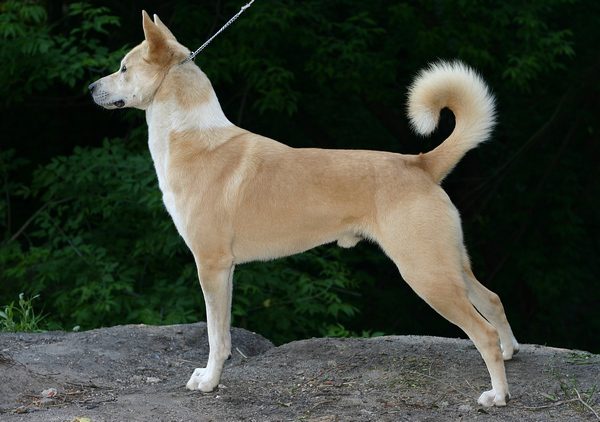Key Takeaways:
- Giant dog breeds can make great pets for individuals or families who have enough space and resources to accommodate their size and exercise needs.
- Despite their large size, many giant dog breeds are known for their gentle and friendly nature, making them good companions and suitable for households with children.
- It is important to provide proper training and socialization from a young age to ensure that giant dog breeds grow up to be well-behaved and obedient pets.
- Regular exercise is crucial for giant dog breeds to maintain their physical health and prevent obesity, so owners should be prepared for daily walks or other forms of physical activity.
- Due to their size, giant dog breeds may require more food, grooming, and veterinary care compared to smaller breeds, so potential owners should consider the associated costs before bringing one into their home.
Are you ready to embark on a journey into the world of giant dog breeds? If you've ever wondered what it would be like to have a furry companion that's larger than life, then this is the perfect topic for you. Not only will we explore the top 10 giant dog breeds that make great pets, but we'll also uncover the hidden benefits of owning one of these gentle giants. Understanding these breeds is essential because they bring a unique set of qualities and characteristics that can enhance your life in ways you never thought possible. So, get ready to discover fascinating facts, heartwarming stories, and practical advice on how to choose and care for a giant dog breed. By the end of this journey, you'll be armed with all the knowledge you need to make an informed decision about whether one of these colossal canines is right for you. Get ready to unleash the joy and wonder that comes with having a giant four-legged friend by your side!
Examples of Giant Dog Breeds That Make Great Pets
Gentle Giants: Great Danes
One example of a giant dog breed that makes a great pet is the Great Dane. Known as the "gentle giants," Great Danes are friendly, patient, and good-natured. Despite their imposing size, they are often described as gentle and loving towards their families. They are also known to be great with children and can form strong bonds with them.
Great Danes are intelligent dogs and can be trained easily. They are generally well-behaved indoors and make excellent house pets. However, due to their large size, they require regular exercise to stay healthy and happy. Daily walks or playtime in a secure yard are necessary for their physical and mental stimulation.
Majestic Protectors: Saint Bernards
Saint Bernards are another example of giant dog breeds that make wonderful pets. These majestic dogs have a calm and patient temperament, making them great companions for families with children. They are known for being gentle and tolerant, even in chaotic situations.
Saint Bernards have a strong protective instinct and will go to great lengths to keep their loved ones safe. They have been historically used as rescue dogs in the Swiss Alps because of their ability to navigate through snow and locate lost travelers. Despite their size, they are incredibly gentle with children and can be very patient with them.
Size Differences Between Giant and Small Dog Breeds
The main difference between giant dog breeds and small dog breeds is obviously their size. While small dog breeds usually weigh less than 20 pounds (9 kg), giant dog breeds can weigh over 100 pounds (45 kg) or more! This significant difference in size affects various aspects of owning these dogs.
Giant dog breeds require more space to move around comfortably. They need larger living areas and yards to accommodate their size. Small apartments may not be suitable for giant dog breeds as they need room to stretch their legs and move freely. Additionally, their food and exercise requirements are greater than those of small dog breeds.
Why Giant Dog Breeds Are Good for Families with Children
Giant dog breeds can be an excellent choice for families with children. These dogs are often known for their gentle and patient nature, making them great companions for kids. Many giant breeds have a natural affinity towards children and will go out of their way to protect them.
Children can also benefit from having a giant dog breed as a pet. These dogs provide an opportunity for kids to learn responsibility, empathy, and respect towards animals. They can also serve as loyal playmates and offer comfort during difficult times.
Important Factors to Consider Before Adopting a Giant Dog Breed
Before adopting a giant dog breed, there are several important factors to consider. First, you must ensure that you have enough space in your home and yard to accommodate the size of the dog comfortably. This includes providing ample room for them to move around freely and engage in physical activities.
You should also consider the financial aspect of owning a giant dog breed. Larger dogs typically require more food, which means higher expenses on feeding them properly. Veterinary care costs may also be higher due to the specific health concerns associated with giant breeds.
The Need for Space and Exercise in Giant Dog Breeds
Giant dog breeds have high energy levels and require regular exercise to maintain good physical health and mental well-being. Due to their large size, they need plenty of space to run around freely. A spacious yard or nearby park where they can play and exercise is essential for their overall happiness.
Engaging in physical activities with your giant dog breed is not only necessary for their well-being but also provides a great opportunity for you to bond with them. Regular exercise helps prevent obesity, which can lead to various health issues in giant dogs. A tired dog is often a well-behaved and contented dog!
Health Concerns Associated with Owning a Giant Dog Breed
Owning a giant dog breed comes with specific health concerns that potential owners should be aware of. One common issue is joint problems, such as hip dysplasia or arthritis, due to the strain on their large bodies. Regular veterinary check-ups and proper nutrition are crucial to monitor and manage these conditions.
Giant dog breeds may also be prone to bloat, a potentially life-threatening condition where the stomach twists on itself. This requires immediate medical attention. Other health concerns include heart issues, certain types of cancer, and shorter lifespans compared to smaller breeds.
The Importance of Training and Socialization for a Positive Experience with a Giant Dog Breed
Training and socialization are vital for any dog, but they are especially important for giant breeds due to their size and strength. Early training helps establish boundaries and teaches them how to behave appropriately in various situations.
Socialization exposes your giant dog breed to different people, animals, and environments from an early age, helping them become well-rounded individuals. It reduces the chances of fear or aggression towards unfamiliar situations or individuals. Proper training and socialization are key factors in ensuring a positive experience with your giant dog breed.
In conclusion, giant dog breeds can make great pets for those who are prepared to handle their size and exercise needs. With proper training and care, these gentle giants can bring joy and companionship to families willing to provide them with love and attention.
What large dogs make good pets?
The category of dog breeds includes German Shepherds, Golden Retrievers, Labrador Retrievers, Rottweilers, Great Danes, St. Bernards, and Mastiffs.
What is the biggest and friendliest dog?
Great Danes have been a favorite breed in the United States for a long time. They are large, friendly, and known for being loving family pets, particularly good with kids. While they may not be considered highly effective guard dogs due to their timid nature, their size alone is usually enough to discourage potential intruders.
What is the most gentle giant dog?
The Great Dane is a breed of dog that is famous for its large size, as its name implies. They are often referred to as "Gentle Giants" because of their gentle and loving nature towards people, which makes them an excellent choice for a family pet.
What is the most obedient large dog?
Golden Retrievers are the ideal choice for a family pet, as they enjoy being with their owners and are known for their high level of obedience. According to Cohen, they typically follow commands successfully around 95 percent of the time.
What animal is known as the gentle giant?
Giraffes are commonly referred to as gentle giants.
What is the top 3 biggest dog breed?
Does your dog have insurance? Here is a ranking of dog breeds based on their average weight, with the Mastiff weighing 120-230 pounds, the Boerboel weighing 150-200 pounds, the Tosa Inu weighing 100-200 pounds, and the Saint Bernard weighing 120-180 pounds, among others.
















